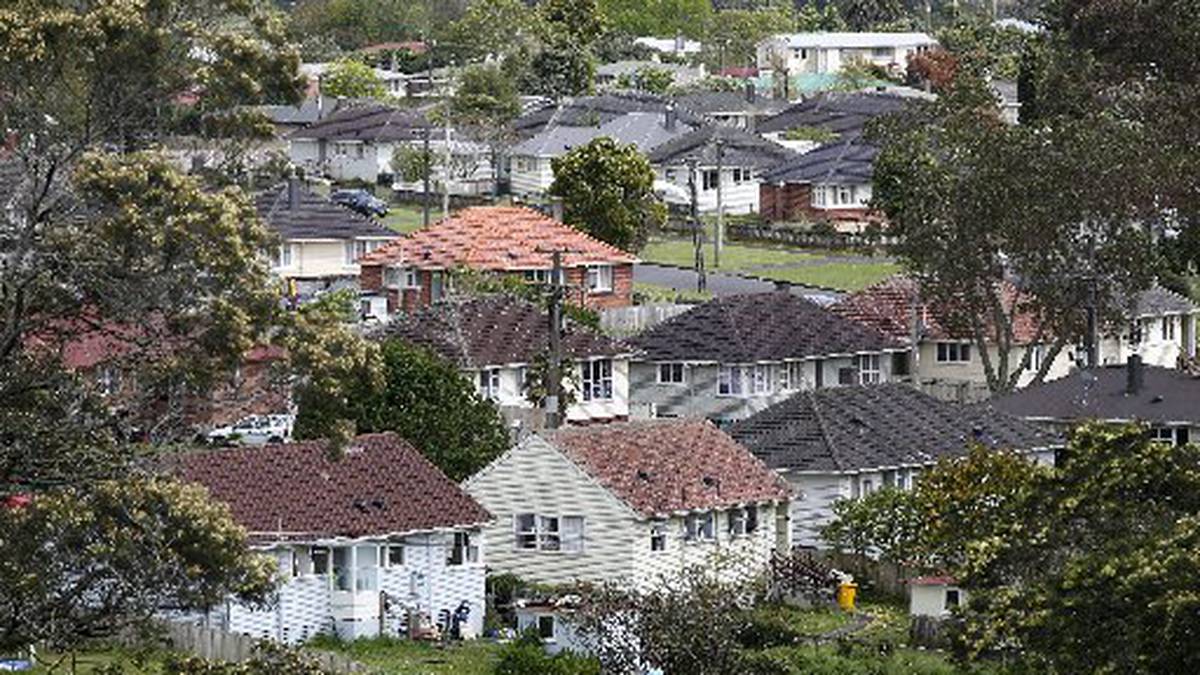New regulations will aim to protect renters and landlords going through a private property manager. Photo / Michael Cunningham
A new bill to regulate residential property managers will be drafted and introduced to Parliament by the Minister of Housing no later than June next year.
The proposed legislation aims to create more protections for
landlords and renters from misconduct such as failure to comply with legal obligations under the Real Estate Authority, Human Rights Act and Privacy Act, as well as the misuse of bond and rental income.
However, eyebrows have been raised over the fact that while residential property managers will be regulated, private landlords who manage their own properties will not.
Nearly one in three households rent. That’s around 28 per cent of New Zealanders who reside in rental properties. While around 42 per cent of properties are managed by property management companies, many properties are managed by owners themselves.
A representative of the Ministry of Housing and Urban Development told the Advocate the new legislation’s primary purpose is to regulate the activities of residential property managers.
“The landlord-tenant relationship is already governed by the Residential Tenancies Act and issues of compliance with, or understanding of, the obligations under the RTA are best addressed through that regime.”
The spokesperson did however note that “an amendment is due to be made that means the Tenancy Tribunal can choose to require landlords to use a property manager if they have been found in breach of certain sections of the RTA twice or more within a five-year period”.
“If tenants are concerned that their landlord is breaching the Residential Tenancies Act, they can apply to the Tenancy Tribunal,” they stated.
Advertisement
However, the Whangārei Citizens Advice Bureau told the Advocate it has in the past 12 months helped over 200 people with residential tenancy issues, and want to see equal regulations in place.
“Common issues are where housing is in poor condition and the property manager doesn’t follow up on requests for repairs and maintenance, tells the tenant it’s their problem to sort out, or just doesn’t communicate or respond to messages at all,” it stated.
The bureau believes anyone in the business of managing residential properties “should be held to consistent standards of behaviour”.
“This includes private landlords,” it said, “by not regulating private landlords, this creates a two-tier system where the standards that renters can expect are determined by who is responsible for managing their home.”
Spokesman from the Northland Property Investors’ Federation, Gordon Lambeth, spoke to the Advocate about his views on the controversy.
He argued that a professional outfit such as residential property managers should hold a higher standard than owner-managers.
/cloudfront-ap-southeast-2.images.arcpublishing.com/nzme/WHIUSPPBVRFK3EI5C7RZB7L3DU.jpg)
He explained that the New Zealand Property Investors Federation has taken the issue into its own hands, creating a code of conduct set out for all members.
Lambeth also explained that the federation has created a 12-step programme with comprehensive modules that highlight property law. The course doesn’t cost as a member, and costs non-members $350.
Advertisement
The problem, however, is that there is currently no legal framework for education requirements or standards of conduct. Members of the federation and non-members aren’t bound to adhere to the standards, and Lambeth said that can put a bad reputation on owner-managers in general.
“It makes it difficult because in every organisation there’s always ratbags.”
His belief is that being part of the federation “stops you from making the wrong decisions as much as we possibly can with advice”.
He also stated, “I can’t see how a central government regulation would do any better than we do.”
He believes further regulations would create a bigger problem for landlords and tenants, and highlighted how current regulations are harming owners.
“It just concerns me how many people are out there who are landlords who are getting caught out by the whole healthy homes and extra regulations,” he said. “What we’re seeing is the more and more regulation that has come in, the bigger the problem has come in, as far as rental availability.”
He said rural Northland is now full of farmhouses with no one in them, and ghost houses, with the cost to adhere to regulations “just not worth it” for owners.
The Whangārei Citizens Advice Bureau believes further regulations would offer more protections for renters though, and suggested it’s an important step for ensuring security for all involved.
“The Residential Tenancies Act sets out the rights and responsibilities of tenants and landlords, including those who manage properties for landlords. This covers all the important stuff like rent and bond payments, maintenance and repairs, healthy homes, and rules for ending a tenancy and ways of resolving disputes.
“However, it doesn’t address things like standards of conduct or education requirements for people managing properties. That’s why regulation is important. It means that renters can have some confidence that the person managing their home knows and respects the law and will treat them fairly and reasonably – and that when they don’t, the tenant can make a complaint and expect the property manager will be held to account.”




